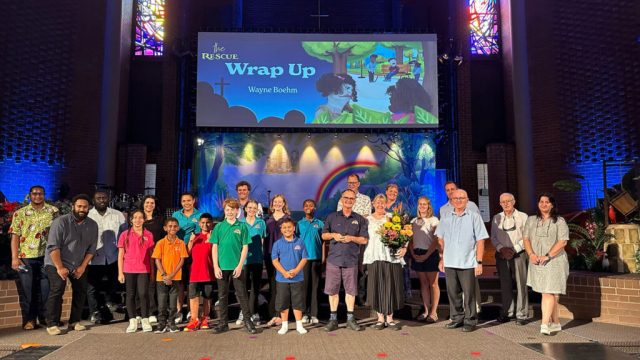Highlighting the link between creation and Creator

Was Ellen White an environmentalist? Was she concerned with Planet Earth, with ecology, recycling, contaminants, and the effects of materialism? These questions were not really asked in the nineteenth century when Ellen White lived. Yet, while plastics, nuclear power, or chemical pollutants were mostly unknown in her time, Ellen White was a strong advocate for the care of the earth.
Her environmental consciousness came from two sources: Scripture and direct inspiration from God. She stressed that we should prize the Bible because it reveals God’s will. In its pages we learn the reason for our creation and how to achieve our purpose.1
Ellen White took a wholistic approach to her life and mission. For her, care of the earth was not distinct from care for human beings. She stressed that nature not only fosters a sense of God’s glory, but also brings rest and joy to people of all ages.2
Living Practically
Growing food for the family was not the only reason Ellen White spoke of the advantages of country living. In her view, children who have opportunities to garden, care for animals, and watch the wonders of nature in beautiful settings, experience both educational and spiritual advantages.3 She believed that physical health improves in nature’s pristine environment.4
How did Ellen White practice what she preached about ecology? She enjoyed gardening, hikes, camping in the mountains, and outdoor picnics with her family; and promoted such natural treatments as hydrotherapy, massage, and other wholistic health interventions.
Ellen White loved flowers and often drew parallels between the botanical world and the Creator of diversity. Convinced that God wants us “to delight in the beautiful things of His creation,”5 she planted her flower beds carefully and every Sabbath during the growing season, fresh bouquets graced her dining table. She taught that nature is God’s gift to us. He intended that we care for and preserve it as a response to His grace.6
Ellen White’s environmental concerns are best reflected in her emphasis on a balanced vegetarian diet. Not only does practicing vegetarianism result in better health—it saves animals and earth’s commodities. It provides a practical answer to feeding the world’s hungry through more efficient uses of grains and other crops.
It was not just the health of humanity7 that drove Ellen White’s activism for the vegetarian diet, it was also concern for the suffering of animals.8 She spoke to the ecological abuses of slaughterhouses and factory farms when she wrote, “Animals see and hear and love and fear and suffer.”9
Creation Restoration
Ellen White linked ecology to the gospel commission when she wrote, “[Men and women] were to cooperate with God in restoring the diseased land to health, that it might be a praise and a glory to His name.”10 Indeed, she felt that careful stewardship of the land is an important duty.11
Long before greed for oil dominated world politics, before the alarming chemical contamination of water, air, and land, Ellen White recognized the need for pure water and clean air.12 She also understood the ill effects of chemical and noise pollution.13 She often pointed to the benefits of a home in the country, even a hike in the country, providing the peace, quiet, and rest that are essential for mental and heart health.14
Like the Scriptures, Ellen White continually urged Christians to reject materialism and simplify their lives in order to have funds to support missions and care for the poor.15 She encouraged families to live within their income, and not accumulate unnecessary belongings.16
In recent years research has shown the moral development potential of the natural world. Yet Ellen White wrote about the moral development potential in nature more than 100 years ago. She believed that nature provided opportunities to learn and deepen spiritual values, if we are intentional in pointing to God as nature’s Creator.17 Thus ecology is not an end in itself. An unspoiled environment points to a God who delights in the beautiful.
Creation’s Creator
In Ellen White’s view, respect for creation included respect for the Creator. She recognized that human rights are grounded in the doctrine of Creation. Sin fractured humanity’s relationship with God, with each other, and with nature. But motivated by God’s grace, we seek to restore all three relationships to wholeness.
Thus, Ellen White could speak to God’s approval of a “government that protects, restores, relieves, but never savors of oppression. The poor especially are to be kindly treated. . . . Aid is to be given to the oppressed, and not one soul that bears the image of God is to be placed at the footstool of a human being. The greatest possible kindness and freedom are to be granted to the purchase of the blood of Christ.”18
Adam and Eve lost their perfect Eden environment because of sin, beginning a process of environmental degradation. Today we damage our environment through materialism, greed, pollution, and an apparent disregard of the earth’s limited resources and beauty.
As Christians, we not only look forward to the final restoration of earth to its original Eden state, but also honor God today by taking responsible care of Planet Earth.
1 Ellen G. White, Counsels to Parents, Teachers, and Students (Mountain View, Calif.: Pacific Press Pub. Assn., 1913), p. 427.
2 Ellen G. White, The Adventist Home (Nashville: Southern Pub. Assn., 1952), p. 153.
3 Ellen G. White, Testimonies for the Church (Mountain View, Calif.: Pacific Press Pub. Assn., 1948), vol. 6, p. 195; The Ministry of Healing (Mountain View, Calif.: Pacific Press Pub. Assn., 1905), p. 370.
4 Ellen G. White, Counsels on Health (Mountain View, Calif.: Pacific Press Pub. Assn., 1923), p. 266; The Ministry of Healing, p. 264.
5 Ellen G. White, Selected Messages (Washington, D.C.: Review and Herald Pub. Assn., 1958, 1980), book 2, p. 356.
6 E. G. White, The Ministry of Healing, p. 365.
7 Ibid., pp. 296, 297.
8 Ibid., p. 314.
9 Ibid., p. 315.
10 The Seventh-day Adventist Bible Commentary, Ellen G. White Comments, vol. 1, p. 1112.
11 Ibid.
12 E. G. White, Selected Messages, book 2, p. 456.
13 E. G. White, The Ministry of Healing, p. 365.
14 E. G. White, The Adventist Home, pp. 136, 139; Counsels to Parents, Teachers, and Students, p. 187.
15 E. G. White, The Ministry of Healing, p. 287.
16 E. G. White, The Adventist Home, p. 396.
17 E. G. White, Testimonies, vol. 3, pp. 376, 377; Counsels to Parents, Teachers, and Students, pp. 54, 55.
18 Ellen G. White, Manuscript Releases (Silver Spring, Md.: Ellen G. White Estate, 1990), vol. 3, pp. 37. 38.
Cindy Tutsch retired as an associate director of the Ellen G. White Estate. She lives in Seattle, Washington, United States.








